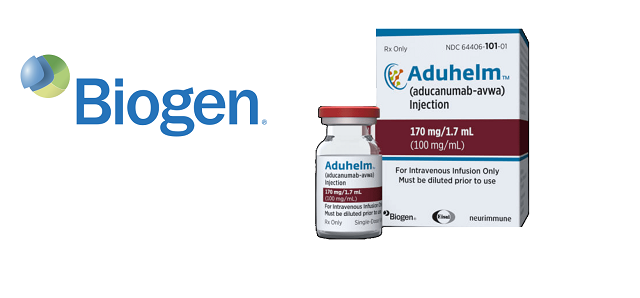Alzheimer’s disease drug Aducanumab is not approved for use in EU
- Normal Liver Cells Found to Promote Cancer Metastasis to the Liver
- Nearly 80% Complete Remission: Breakthrough in ADC Anti-Tumor Treatment
- Vaccination Against Common Diseases May Prevent Dementia!
- New Alzheimer’s Disease (AD) Diagnosis and Staging Criteria
- Breakthrough in Alzheimer’s Disease: New Nasal Spray Halts Cognitive Decline by Targeting Toxic Protein
- Can the Tap Water at the Paris Olympics be Drunk Directly?
Alzheimer’s disease drug Aducanumab is not approved for use in EU
- Should China be held legally responsible for the US’s $18 trillion COVID losses?
- CT Radiation Exposure Linked to Blood Cancer in Children and Adolescents
- FDA has mandated a top-level black box warning for all marketed CAR-T therapies
- Can people with high blood pressure eat peanuts?
- What is the difference between dopamine and dobutamine?
- How long can the patient live after heart stent surgery?
Alzheimer’s disease drug Aducanumab is not approved for use in EU. Are you surprised?
On December 17, that the European Medicines Agency (EMA) refused to approve a new drug for the treatment of Alzheimer’s disease in the European Union.
According to EMA, Aducanumab does not seem to be effective in treating early symptoms in adults.
The Alzheimer’s charity said they were disappointed with the decision because thousands of people had no treatment options.

As the first new treatment for Alzheimer’s disease in 20 years, it received controversial approval in the United States in June this year.
At the time, many scientists said that although it targeted amyloid, a protein that forms abnormal clumps in the brains of Alzheimer’s patients, there was little evidence from experiments that it was beneficial.
The drug maker Biogen can ask EMA to review the decision within the next two weeks. It is not clear whether the company will submit a separate application for approval to the UK regulator MHRA.
May cause harm
EMA’s decision was based on two major studies of more than 3,000 early-stage Alzheimer’s patients, which compared the effects of low-dose and high-dose drugs with a placebo pill.
These patients had mild cognitive impairment or mild dementia and were evaluated for symptoms after 78 weeks of treatment.
EMA said: “The results of the main studies are conflicting. Overall, there is no evidence that Aducanumab is effective in the treatment of early adult Alzheimer’s disease.”, “In addition, studies have not shown that this drug is safe enough, because the brains of some patients The partial scan images showed abnormalities suggesting swelling or bleeding, which may cause potential harm.”
EMA concluded that the benefits of the drug did not outweigh its risks and recommended that marketing authorization be rejected.
It is estimated that there are nearly 8 million dementia patients in the European Union and about 1 million in the UK, and this number is expected to double by 2050. Alzheimer’s disease is believed to be the cause of most of these cases.
Hilary Evans, chief executive of the Alzheimer’s Research Center in the United Kingdom, said the news is “very disappointing news for patients with Alzheimer’s disease.”
She added: “Biogen must continue to collect the necessary data to clarify the safety and effectiveness of Aducanumab.
“Although the United States is conducting further data collection, the United Kingdom is in a uniquely advantageous position to provide world-class clinical research that can solve the unanswered questions of the drug.”
The Alzheimer’s Association stated that more than 125 Alzheimer’s disease drugs are currently undergoing clinical trials, and more funds are needed to accelerate the availability of these drugs.
On December 16, Biogen and Eisai (Eisai) announced that it expects to start a large confirmatory clinical trial in May next year to further evaluate the efficacy of Aducanumab.
The implementation of the trial is one of the conditions for Aducanumab to obtain accelerated approval from the US FDA, and it can answer some unresolved questions.
Biogen plans to submit the final clinical trial plan to the FDA in March 2022.
If approved by the FDA, patient screening will be initiated in May 2022. The main clinical endpoint will be evaluated 18 months after the start of treatment.
No other details about the trial design have been disclosed, and no endpoints have been disclosed.
Based on previous experience, Biogen expects that the test will take about four years to complete, which means that the company will not get the data until 2026.
However, this is still five years faster than Biogen’s initial confirmatory research schedule, which was agreed upon by Biogen and the FDA when Aducanumab was approved in June this year.
At that time, the FDA was criticized for giving Biogen 9 years to complete the confirmatory test to provide definitive evidence on whether Aducanumab can slow down the cognitive decline associated with Alzheimer’s disease.
Alzheimer’s disease drug Aducanumab is not approved for use in EU
(source:internet, reference only)
Disclaimer of medicaltrend.org
Important Note: The information provided is for informational purposes only and should not be considered as medical advice.



